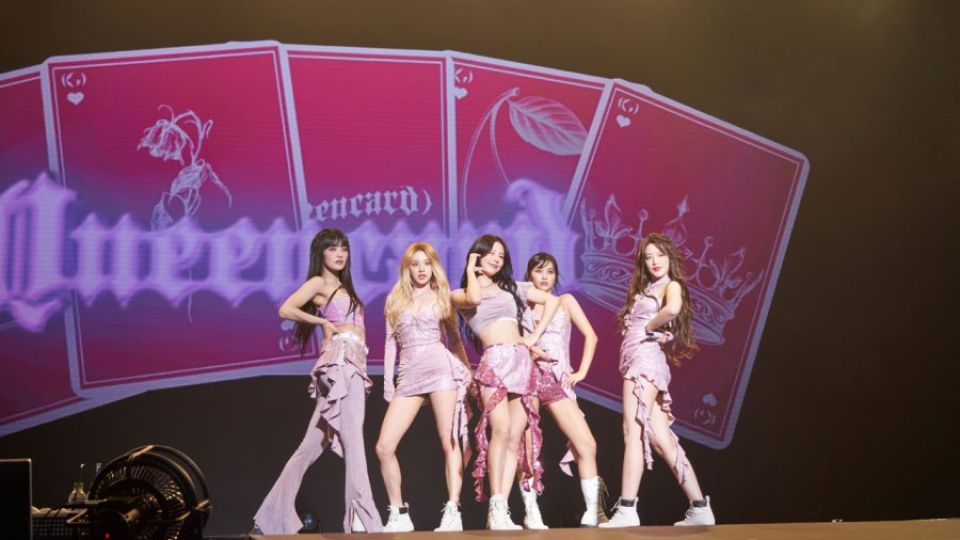SEOUL (ANN/THE KOREA HERALD) – As K-pop continues to captivate audiences worldwide, an intriguing trend is emerging within the genre’s music landscape. The prevalence of English lyrics in K-pop songs is on a steady ascent, mirroring the genre’s growing international appeal.
Recent data from Circle Chart reveals a significant development, with English words constituting a substantial 41.3 per cent of the lyrics in K-pop girl groups’ songs that secured positions on Circle Chart’s Digital Chart Top 100 during the first half of this year.
This linguistic shift underscores the genre’s deliberate efforts to connect with a global audience and reflects K-pop’s evolving musical identity.
This is an increase of 18.9 percentage points compared to 2018, when the figure marked 22.4 per cent.
Breaking it down by group, 53.6 per cent of the words in (G)I-dle’s releases in the first half of this year were in English, while it was 50.5 per cent for Le Sserafim, 50 per cent for Blackpink, 49.3 per cent for Nmixx and 48.4 per cent for NewJeans.
Ive used the least English words, at only 24.9 per cent.
English words most used in K-pop girl groups’ singles were “I,” “You,” “Like” and “Love.”
“As K-pop girl groups started to expand their reach overseas since the global success of Blackpink, the use of English started increasing in their songs. The more foreign demand the group had, the more English they used,” said Kim Jin-woo, a senior researcher at Circle Chart.
“The young generation in Korea has no resistance against English lyrics so the language in which K-pop lyrics are written is no longer limited to Korean,” said local music critic Kang Tae-gyu.
Meanwhile, the increase of English words used in lyrics was relatively lower for K-pop boy bands’ releases that landed on Circle Chart’s Digital Chart Top 100 in the first half of this year, with 24.3 per cent of those words being English, marking growth of 5.6 percentage points from 2018.
“This is because girl groups are not only targeting their fandom, but also the global audience, while boy bands’ releases are more centred around targeting their own fandoms,” explained researcher Kim.







